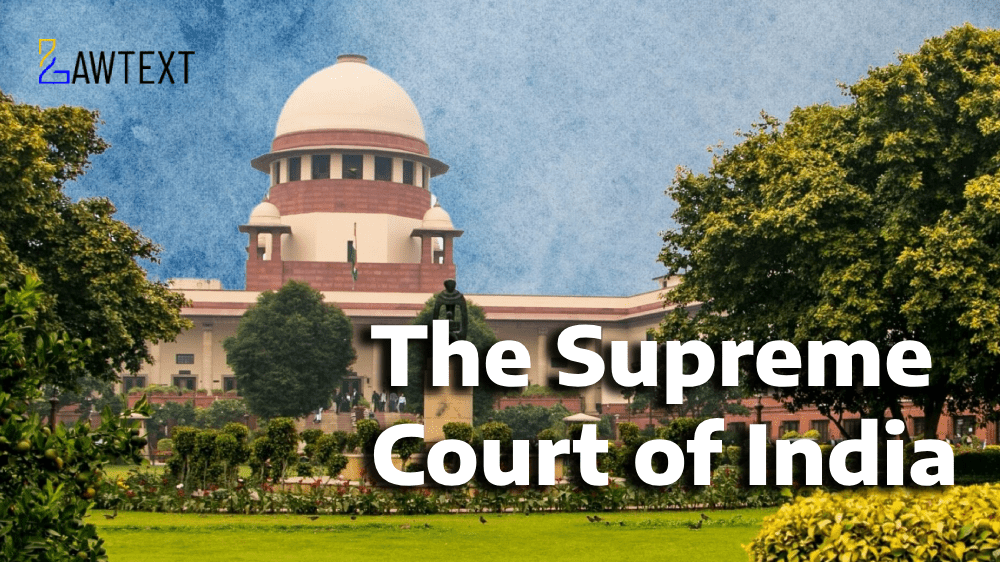Non-Signatory’s Obligation in Family Arrangement Arbitration. A Ruling on the inclusion of non-signatories in arbitration proceedings concerning complex family business arrangements.

CASE NOTE & SUMMARY
Deals with the appointment of a sole arbitrator under Sections 11(6) and 11(9) of the Arbitration and Conciliation Act, 1996. The petitioners sought arbitration to resolve disputes arising from the Family Arrangement Agreement (FAA) between the AMP Group and JRS Group. A key issue was whether the SRG Group, a non-signatory to the FAA, could be compelled to arbitrate due to its participation in business transactions linked to the FAA. The court analyzed the principles regarding non-signatories in arbitration, particularly focusing on the SRG Group’s involvement and obligations despite not being a formal party to the FAA.
1. Case Background:
- The AMP and JRS Groups are engaged in a family business arrangement. Disputes arose between them and with the SRG Group, leading to multiple legal actions.
- The FAA signed between the AMP and JRS Groups aimed to resolve these disputes, dividing the business assets. Despite SRG not signing the FAA, its actions were considered integral to the FAA's implementation.
2. Petitioners' Argument:
- The petitioners argued that the SRG Group, though not a signatory, was involved in the FAA discussions and its execution was dependent on SRG’s participation. Hence, SRG should be bound by the arbitration clause.
3. Respondents' (JRS & SRG) Argument:
- The SRG Group contended that since it was not a signatory to the FAA, it could not be compelled into arbitration. The JRS Group also claimed that the FAA defined parties, excluding SRG, which further diminished the possibility of SRG’s inclusion in arbitration.
4. Court's Analysis:
- The court assessed whether non-signatories, like the SRG Group, could be included in arbitration if they are integral to the transaction under dispute.
- The legal principle derived from previous cases emphasized that the court’s scope under Section 11(6) was to determine the existence of an arbitration agreement, while other aspects, including non-signatory participation, could be examined by the arbitral tribunal.
5. Conclusion:
- The court appointed a sole arbitrator to adjudicate disputes involving AMP, JRS, and SRG, recognizing that SRG’s actions related to the FAA warranted consideration by the arbitral tribunal.
Acts and Sections Discussed:
- Arbitration and Conciliation Act, 1996: Sections 11(6) and 11(9) — Pertaining to the court’s power to appoint arbitrators and the extent of its jurisdiction.
- Section 2(1)(f): Definition of international commercial arbitration, applicable due to the involvement of entities and individuals outside India.
Ratio:
- The principle that non-signatories may be bound by an arbitration agreement if their involvement in the relevant transactions is significant and necessary for the enforcement of the agreement.
ISSUE OF CONSIDERATION
AJAY MADHUSUDAN PATEL & ORS. VERSUS JYOTRINDRA S. PATEL & ORS.
Citation: 2024 LawText (SC) (9) 201
Case Number: ARBITRATION PETITION NO. 19 OF 2024
Date of Decision: 2024-09-20
Case Title: AJAY MADHUSUDAN PATEL & ORS. VERSUS JYOTRINDRA S. PATEL & ORS.
Before Judge: (Dr. Dhananjaya Y. Chandrachud CJI. , J.B. Pardiwala J. , Manoj Misra J.)
Appellant: AJAY MADHUSUDAN PATEL & ORS.
Respondent: JYOTRINDRA S. PATEL & ORS.

